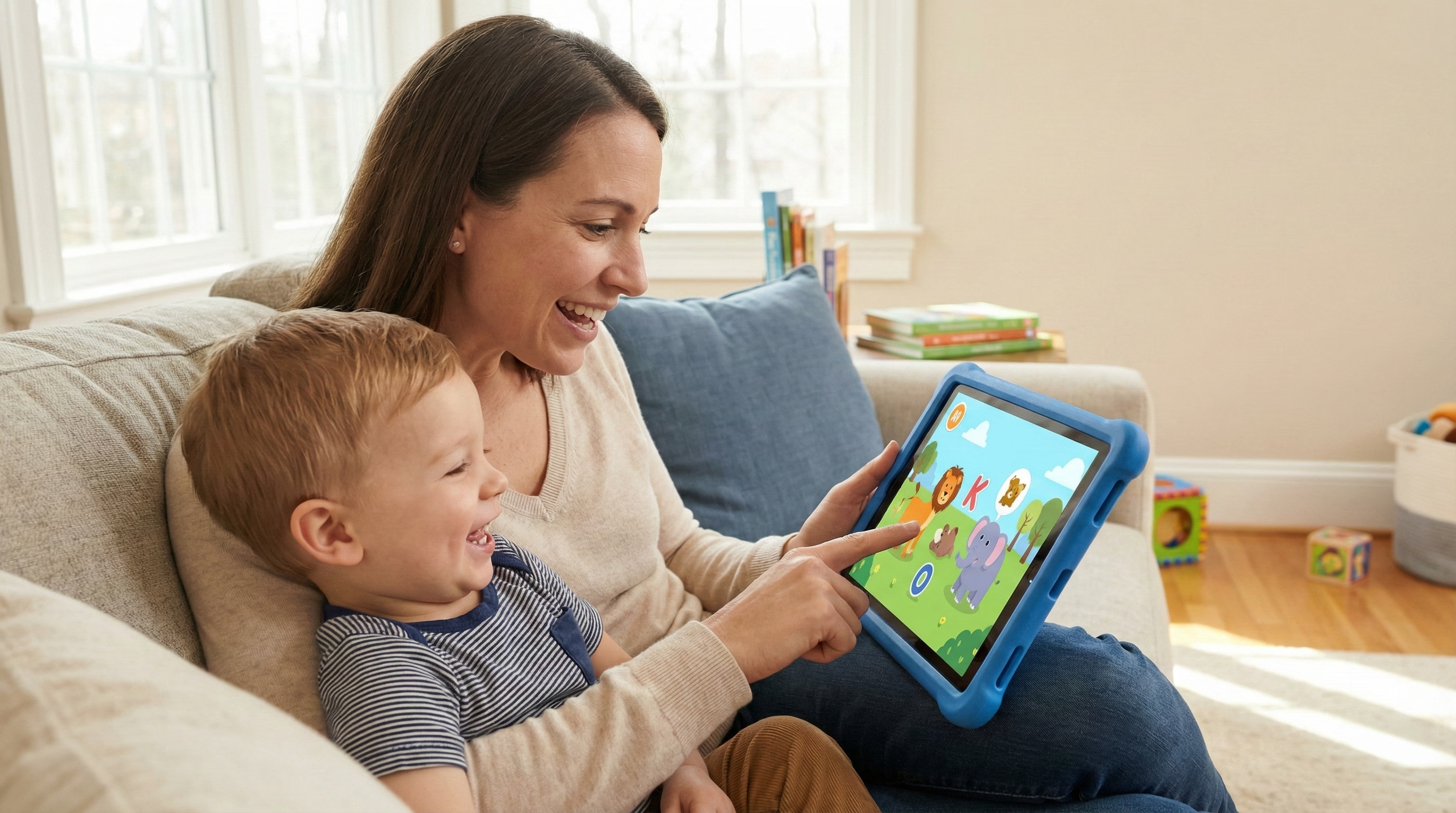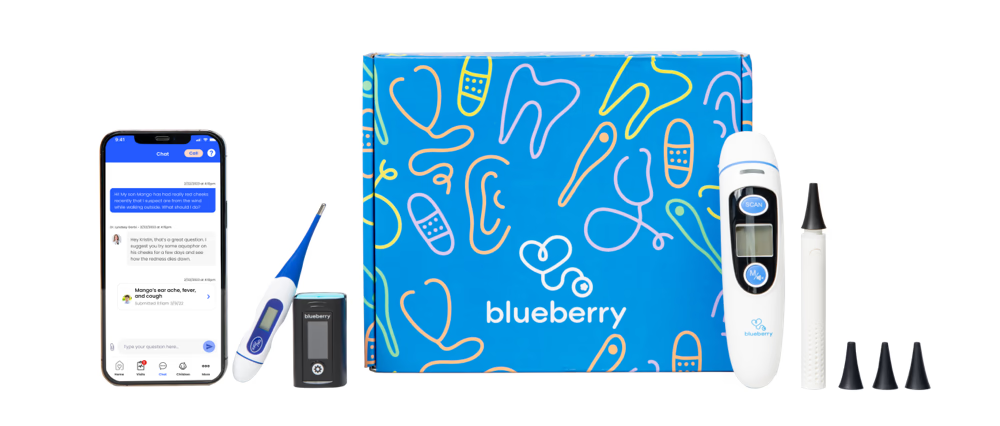Health tips from Blueberry Pediatrics

Showing
0
out of
0
results
Category

Bacterial Infections
Viral Infections
February 4, 2026
Ear Infections 101: What’s Urgent and What’s Not
Read More


Bacterial Infections
Viral Infections
November 24, 2025
How to dress a baby with fever at night?
Read More


Milestones and Development
Behavioral Health
November 21, 2025
After-School Meltdowns: Why They Happen and How to Help
Read More


Milestones and Development
Preventative Care and Immunization
Eye issues
November 21, 2025
Vision and Hearing: Why Screenings Matter Before School Starts
Read More


Viral Infections
Online Doctor
November 21, 2025
When Is It Just a Sniffle? A Guide to Back-to-School Symptoms
Read More


Milestones and Development
Online Doctor
Viral Infections
November 21, 2025
Back-to-School Germs: What Parents Should Expect
Read More


Milestones and Development
Behavioral Health
November 21, 2025
First Week Jitters: Helping Kids Feel Confident Going Back to School
Read More


Preventative Care and Immunization
Prescriptions, Medications, and Antibiotics
November 21, 2025
Managing Constipation in Kids: A Pediatrician's Guide to Happy Tummies
Read More


Milestones and Development
November 21, 2025
The Quiet Clues: Anxiety Symptoms Parents Might Miss in Children 0-12
Read More

.avif)
Viral Infections
Online Doctor
November 21, 2025
Can a Sinus Infection Cause Pink Eye?A Guide for Parents from a Pediatrician.
Read More

.avif)
Milestones and Development
November 21, 2025
When Does the Newborn Stage End? A guide from a pediatrician
Read More


Prescriptions, Medications, and Antibiotics
Eye issues
November 21, 2025
What is Commonly Misdiagnosed as Pink Eye: A Pediatrician’s Guide for Parents
Read More

.avif)
Viral Infections
Bacterial Infections
Online Doctor
November 21, 2025
How to Tell if Your Newborn is Too Hot: A Pediatrician’s Guide for Parents
Read More


Viral Infections
Bacterial Infections
November 21, 2025
What Should You Do When Your Toddler's Poop Is Green? A Pediatrician’s Guide for Parents
Read More


Prescriptions, Medications, and Antibiotics
November 21, 2025
A Pediatrician's Guide: How Often Should You Bathe a Newborn?
Read More

%20(1).webp)
Prescriptions, Medications, and Antibiotics
November 21, 2025
Understanding Your Baby's Foamy Poop: A Guide From Your Blueberry Pediatrician
Read More


Milestones and Development
November 21, 2025
Understanding Cooing in Infants: A Pediatrician's Guide for Parents
Read More


Rashes and Skin Conditions
November 21, 2025
Dry Chapped Lips on Newborn? A Pediatrician's Guide for New Parents
Read More


Bacterial Infections
Rashes and Skin Conditions
November 21, 2025
Impetigo Treatment and Prevention: What Parents Need to Know
Read More


Rashes and Skin Conditions
November 21, 2025
Exploring Different Types of Diaper Rash: Causes, Symptoms, and Solutions
Read More


Preventative Care and Immunization
November 21, 2025
Why Can't Babies Have Honey? Understanding the Risks and Safety Guidelines
Read More


Rashes and Skin Conditions
November 21, 2025
How long does sunburn last? Guidance from pediatricians
Read More


Viral Infections
Bacterial Infections
November 21, 2025
Pink Eye 101: Causes, Symptoms, Treatment and Prevention
Read More


Preventative Care and Immunization
Rashes and Skin Conditions
November 21, 2025
Sun Safety 101: Protecting Your Children with Sunscreen
Read More


Cuts, Scrapes and Bug Bites
November 21, 2025
Bug Bites and Stings: Types, Treatment, and Prevention
Read More


Bacterial Infections
Viral Infections
November 21, 2025
Do you need antibiotics for ear infections?
Read More


Prescriptions, Medications, and Antibiotics
Viral Infections
Bacterial Infections
November 21, 2025
Pink Eye Care Guide
Read More


Online Doctor
Prescriptions, Medications, and Antibiotics
November 21, 2025
What to Know About Online Doctors
Read More


Prescriptions, Medications, and Antibiotics
November 21, 2025
Can you get antibiotics over the counter?
Read More


Online Doctor
Viral Infections
November 21, 2025
At Home Flu Test Guide: Where To Buy, Accuracy, and FAQ
Read More


Prescriptions, Medications, and Antibiotics
Bacterial Infections
November 21, 2025
A Quick Guide To Antibiotics from a Pediatrician
Read More


Prescriptions, Medications, and Antibiotics
November 21, 2025
Rapid Strep Test Guide: Answers from a Pediatrician
Read More


Preventative Care and Immunization
November 21, 2025
A Complete Guide to Safe, Stress-Free Holiday Travel
Read More


Viral Infections
Preventative Care and Immunization
November 21, 2025
RSV: A Must-Read Guide from a Pediatrician
Read More


Bacterial Infections
Prescriptions, Medications, and Antibiotics
November 21, 2025
Strep Throat: A Complete Guide for Parents
Read More


Bacterial Infections
Viral Infections
November 21, 2025
A Pediatrician's Guide to Sore Throat: Symptoms, Causes, Treatment
Read More


Bacterial Infections
Viral Infections
November 21, 2025
Is an Ear Infection Contagious? Your Questions Answered by a Pediatrician
Read More


Bacterial Infections
Viral Infections
November 21, 2025
Sore Throat, Itchy Ears - What's the Cause? Guidance from a Pediatrician
Read More


Bacterial Infections
Viral Infections
November 21, 2025
Is Ice Cream Good for a Sore Throat? Guidance from a Pediatrician
Read More


Milestones and Development
Bacterial Infections
Newborn
Infant
Cuts, Scrapes and Bug Bites
November 21, 2025
A Pediatrician's Guide to Telehealth
Read More


Prescriptions, Medications, and Antibiotics
July 1, 2025
3 Common Questions About Antibiotics Answered by a Doctor
Read More


Bacterial Infections
Viral Infections
June 26, 2024
Baby and Toddler Ear Infections - Guidance from a Pediatrician
Read More


Rashes and Skin Conditions
November 18, 2024
Diaper Rash Caused By Teething? Everything You Need to Know
Read More


Rashes and Skin Conditions
April 30, 2024
Baby Eczema: The Ten Things Every Parent Should Know
Read More


Bacterial Infections
Infant
November 18, 2024
Baby Formula Shortage Questions? We've got answers!
Read More


Milestones and Development
April 4, 2024
When Are Babies Supposed to Talk? 3 Times Parents Shouldn’t Panic!
Read More


Milestones and Development
April 4, 2024
Baby Talking Milestones: A Guide for Parents With Kids Aged 1-2 Years Old
Read More


Milestones and Development
April 4, 2024
Ten Simple Strategies to Help Your Baby Develop Speech
Read More


Bacterial Infections
Milestones and Development
Viral Infections
November 18, 2024
Why is my baby rubbing ear and side of head?
Read More


Prescriptions, Medications, and Antibiotics
November 18, 2024
8 Ways to Show Your Children Love - Valentine's Day & Every Day
Read More


Bacterial Infections
Viral Infections
Milestones and Development
August 26, 2024
Baby Ear Infection vs Teething - Everything You Need To Know!
Read More


Preventative Care and Immunization
November 18, 2024
Sharing Isn’t Always Caring: Preventing Herpes Simplex Virus in Children
Read More


Bacterial Infections
Infant
Newborn
November 18, 2024
10 Ways Virtual Doctor Visits Can Help Your Family
Read More

🙄
No results found
Try to search different keyword


.avif)
%20.avif)
.avif)

.avif)













































